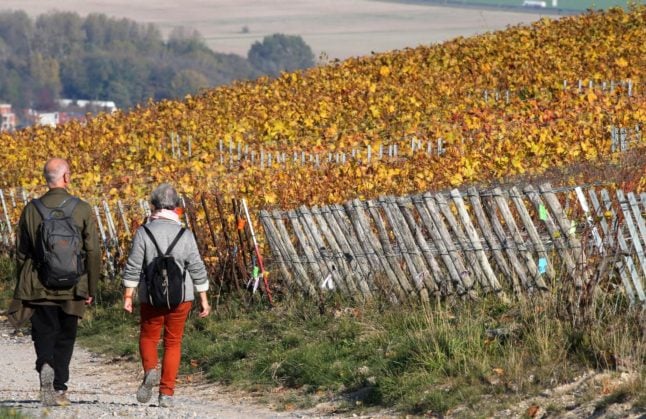Inside France is our weekly look at some of the news, talking points and gossip in France that you might not have heard about. It’s published each Saturday and members can receive it directly to their inbox, by going to their newsletter preferences or adding their email to the sign-up box in this article.
Wild west web
This week a commission of experts produced a detailed report on the effect of screens on children, along with some far-reaching recommendations including a complete screen ban (including TV) for toddlers, no smartphones for under 13s and avoiding social media like Instagram or TikTok for all under 18s.
This is at this stage just a series of recommendations, but the intention is to draw up legislation on this topic – which is being discussed around the world as more people worry about the effects of too much screen time on youngsters.
As a relatively new technology, it’s not uncommon for legislation to lag behind the rapidly changing and developing online world. But while some countries seem to view the internet as a kind of natural phenomenon which cannot be legislated for – like the weather – France has a history of being more interventionist.
From the ‘GAFA’ legislation that eventually forced tech giants like Apple and Facebook to pay tax in the countries that they operate in to legislation to limit the pictures of children that parents can publish on social media – France has shown itself at least willing to try.
As Emmanuel Macron said this week, legislation is more effective if done on an EU-wide basis, and it’s notable that the EU Commissioner leading the charge to try and make social media companies clean up their act is a Frenchman – the charismatic (or should that be attention-seeking?) Thierry Breton.
Talking France
We discuss the screens report – and the reaction of French parents – on this week’s Talking France podcast, as well as French May traditions, changes to EU travel and France’s oldest barber.
That barber is 90 years old and still working, by the way, one of a growing number of French people who are not only living to a ripe old age, but choosing to carry on working – for all that the country still has the lowest official retirement age in Europe.
Listen here or on the link below.
Say non or not?
A parliamentary resolution to ‘say non to speaking English during the Paris Olympics’ gained worldwide media coverage this week – but there is more to this story.
One the one hand a small group of mostly right-wing MPs passed a completely non-binding resolution – on the other hand the people actually organising the Games have shown themselves more than happy to speak English if required and to provide all information in both English and French. Likewise signage on the public transport is being put out in multiple languages to make life easy for international visitors.
Without wanting to over-state things too much, you might almost see this as the face of the old France versus the new – and it’s certainly noticeable that younger French people tend to be happy and even excited by an opportunity to speak English, and don’t see speaking other languages as any kind of loss to French culture – which happily remains as strong as ever.
Wordplay
And as a dedicated fan of terrible puns, I couldn’t help but laugh/groan at this one (say the name out loud)*

The French are fond of puns and wordplay, which is one reason that French humour can be hard for foreigners to understand. Another reason is that it’s highly referential, so if you don’t get the political/sporting/cultural reference then you won’t get the joke.
READ ALSO Are the French really ‘not funny’?
But then, all humour is based on culture as much as it is on language – as witnessed by the number of British comedies that get remade for an American audience.
Inside France is our weekly look at some of the news, talking points and gossip in France that you might not have heard about. It’s published each Saturday and members can receive it directly to their inbox, by going to their newsletter preferences or adding their email to the sign-up box in this article.
* The name when said out loud sounds like ‘J’ai pas de riz’ or ‘I have no rice’ – hence the reply ‘no worries, just eat pasta’.




 Please whitelist us to continue reading.
Please whitelist us to continue reading.
Member comments